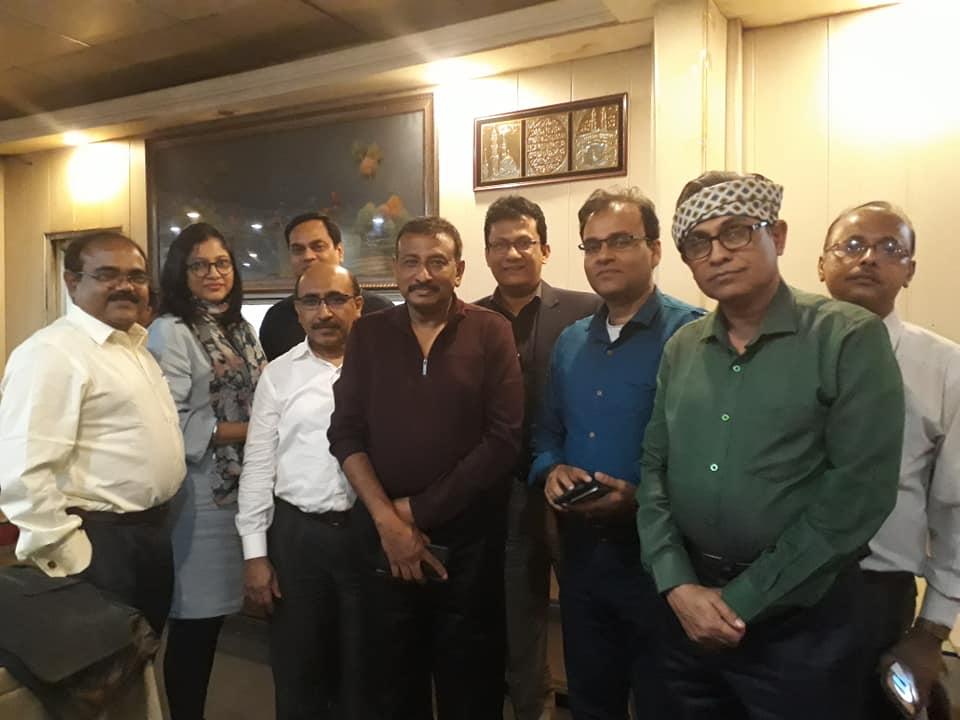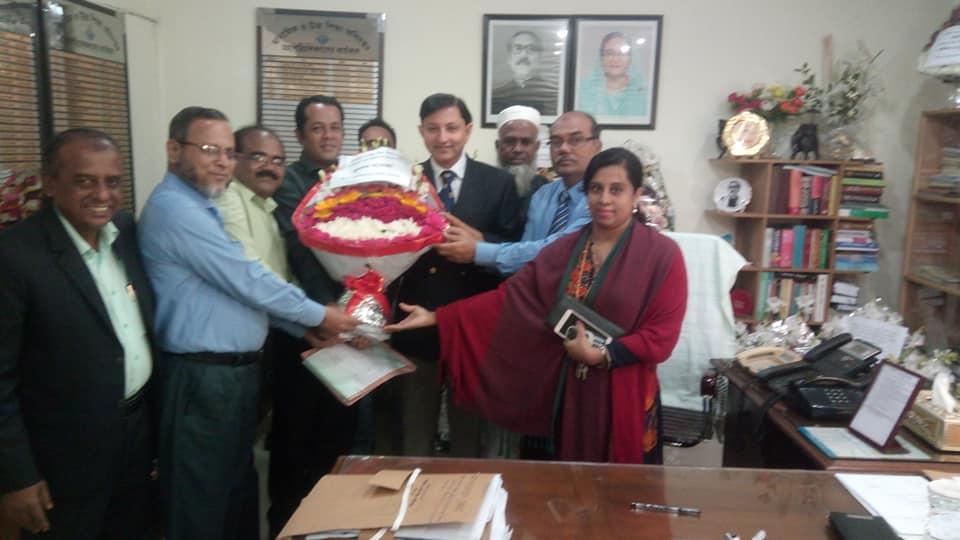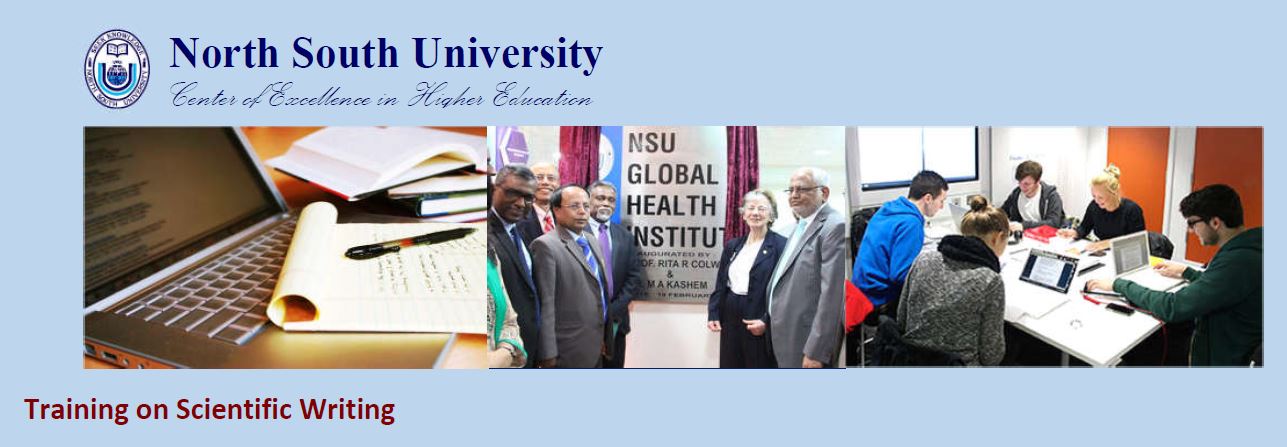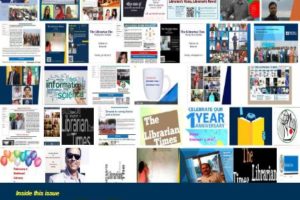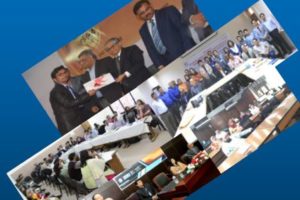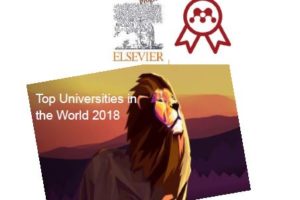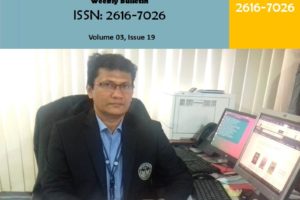
Click here to read the issue
An interview with Dr Md. Zahid Hossain Shoeb, University Librarian, North South University (NSU)
Dr Md. Zahid Hossain Shoeb, is an alumni of Information Science and Library Management (ISLM), University of Dhaka. He completed his MA, MPhil and PhD from the University of Dhaka too. He also awarded MSc degree in Computer Science from Independent University, Bangladesh (IUB) and GNIIT in System Management from National Institute of Information Technology.
He started his career with Rifles Public School and College, Dhaka, later started working with IUB Library in different positions. He received several foreign grants including IFLA-ALP Fellowship on Information Literacy and Information Technology, Victoria University of Wellington. He has different referred publications including from UK, Germany, USA and Canada.
Recently, he talked with The Librarian Times (TLT) and shared his views on various professional issues. TLT Associate Editor Mr Md Ahasan Habib conducted this exclusive interview.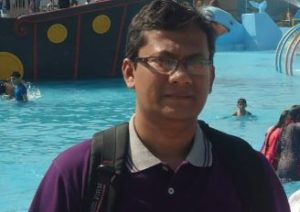
TLT: Could you please tell us something about your Library (location, infrastructure, year of establishment, total user, total collection: online and print, and professional Manpower etc.)?
Dr Zahid: The NSU Library has grown over the years since 1992 and now is one of the best university libraries in Bangladesh due to the rich collection, welcoming space and quality services provided to the library users. This is the first fully automated university library in the country. The library has introduced state-of-the-art technology Radio Frequency Identification (RFID) based Library Management System to automate library operation and management for the first time in the country in December 2012. The library users themselves can issue and return books using Self-Check and Book-Drop machines. They can also track the books on shelves using tracking machines.
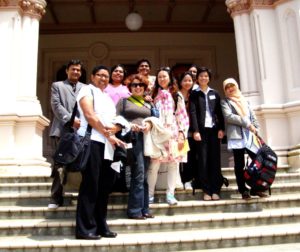
Currently, the library provides research support, information skills, bibliographic management, lending, reference, readers’ guidance, internet, reading, news clipping, database searching, audio-visual, current awareness and SDI services to its users. The Wi-Fi and broadband internet connection of the library building help the library users to access online resources easily. Presently, NSU Library possesses total 45,448 printed books, 5,869 bound volume of periodicals and 1,644 audio-visual instruments. NSU Library is subscribing e-Resources from 52 e-Resources Database Providers (including 64,624 e-journal titles and 87,903 e-book titles) which cover almost all the subjects of NSU curricula. NSU Library is also facilitating the Citation and Abstract database ‘Scopus’, Research Management tool ‘Mendeley’, Plagiarism Checking portal ‘Turnitin’, Remote Access to online resources facilities ‘OpenAthens’, and Spelling & Grammar checker tool ‘Grammarly’ for the faculty members and students. At present, the library maintains 12 different sections, namely, arts and social sciences, applied sciences and engineering, biomedical sciences, reference, periodicals, cyber & audio-visuals, newspaper archive, study hall, faculty corner, Chinese books, acquisition & processing, and library administration to provide better services to its users. Currently, the Library has more twenty thousand users and 24 regular staff.
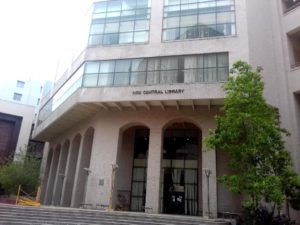
TLT: Your University Library uses Turnitin Software, and very few universities in Bangladesh use this software. Regarding quality of the research, your library is playing a significant role in supporting this tool. Tale us something about this issue.
Dr Zahid: NSU is the centre of excellence in higher education where there is no compromise in quality. Research is an integral part of the tertiary level of education by which you can measure the intellectual outcome of the academic community. Both graduate and undergraduate students have to go through the process of ethical use of information to minimise the culture of plagiarism. NSU faculty members and students have their Turnitin accounts. Faculty members created several virtual classes for respective courses where students submitted their assignment, tutorial, ideas, proposal, thesis, article etc. Turnitin software checks the originality of the content which shows the similarity index with percentage as well detailed result of the source from where the texts have been copied.
TLT: Do you get enough Library budget? How do you set your Priority work within the allocated budget?
Dr Zahid: NSU Library does not have any budget restriction. NSU authority believes in “good resources for good research”. If any resources are required for education and research purpose, NSU authority is kind and generous enough to approve it.
TLT: Say something about the training experience you have congregated from New Zealand.
Dr Zahid: Oh, it was a long time ago I got the opportunity. It was a pleasant experience to learn something from the leader of any field. It was one-month project-based hands-on training programme on Information Literacy and Information Technology at Victoria University of Wellington, New Zealand. Nine participants from Asia-Oceania region got a grant under the IFLA-ALP fellowship programme in the year 2009. It was a total package of how you can develop a suitable information literacy programme for your users/community in your context and how they will access this programme through the internet.
TLT: So far we know NSU Library uses LC and UDC both classification scheme. What are the advantages and disadvantages of using both schemes?
Dr Zahid: We are not using UDC. Primarily we use LC, and most of the resources are also classified under the DDC systems; resources are organised under the LC scheme. Since its inception, NSU Library has been using DDC scheme. DDC has 10 main classes where LC has 21. We know that library is a growing organism, so in light of the growing collection size and to follow Library of Congress, the then time NSU Library authority shifted to LC to allow more call numbers and to introduce the North American system in Bangladesh. You have to choose one scheme to organise your library collections on the shelves. However as we have to harvest MARC data so, we can easily incorporate those in our catalogue easily.
TLT: Due to rapid changes in technology, user habits and behaviour are also changing. How do libraries can cope up and introduce new services?
Dr Zahid: Technology encompasses a wide range of abilities to the librarian. Library people and libraries must embrace all the relevant library current and emerging trends as well technology which is suitable to their local context with a view of global context. All the library personnel should update themselves to quench the thirst of users to support them with a tailor-made or customised programme. This is the time for the academic and research librarians to show their competencies for academic support and instructional services. Those of us who work in traditional colleges, universities and institutes need to stay focused to cope with the current role
TLT: Do you offer any training for your users? If yes what sorts of training are these?
Dr Zahid: We have several training sessions for the faculty members, graduate and undergraduate students. Undergraduate students are taught several information skills under the information literacy programme. Besides, under the research support programme NSU library conducted several training and workshops for faculty members and masters students. Currently NSU library conducting training on –
- Mendeley
- EndNote
- Turnitin
- Scopus
- Grammarly
- OpenAthens
- Citation Style and Format
- Search Techniques and Strategies
- Evaluate Information Sources
- Ethical use of information
- Subject/Discipline-based E-resource
- Creating Author Profiles/Author Identifier
- Bibliography services
- Identifying High Impact Journals
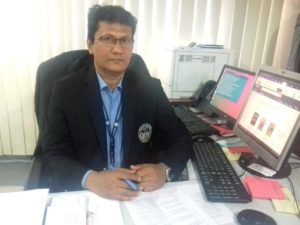
TLT: Earlier NSU Library offered training for professionals like Digital Librarianship. Do you have any plan to reintroduce it?
Dr Zahid: Yes, we are in the process to reboot this training with updated curricula.
TLT: In Public University Library Professional Librarian is a part of the academic council, and he has to perform additional duties to other vital posts including Registrar etc. If private universities practices so, is it good for us?
Dr Zahid: Obviously it is good for us, and it is useful for total education systems. Librarians are playing an active role in the effective learning in higher education systems; they should be included in forums as mentioned above. I am not confirmed right now about updated Private University Act concerning this sort of responsibilities. LAB and BALID may play a dynamic role regarding this issue.
TLT: What types of role the library associations especially LAB and BALID have to play for overall development?
Dr Zahid: There are several professional issues which are beyond an individual or a single institute to solve or to reach. LAB and BALID may serve as a forum to collaborate and coordinate individuals and small groups. So, primarily they should work for the professional development and advocate for the professionals.
TLT: Since you are a practitioner and professional librarian and have a wide variety of local and overseas experience, what is your opinion about the ISLM students learning outcome? Is it enough to learn from their studies to conduct modern library services and management? If not, why?
Dr Zahid: There is no remote control to run a modern library. A fresh graduate needs to learn a lot of things to fit for a modern library. I think relevant education, extensive experience, profound knowledge, research, collaboration and communication, adopting current and emerging trends, and dedication may be the driving forces to run a modern library.
TLT: As you know that The Librarian Times is the first-ever weekly News Bulletin in our field and continuing without having any interruption of the last fifteen months. TLT has also formed TLT foundation for making welfare and development of library profession. What is your suggestion or opinion for development of TLT including its Foundation?
Dr Zahid: TLT members are well equipped, and it is doing well. I think they are on the right track.
TLT: Thank you very much for giving your valuable time to TLT.



